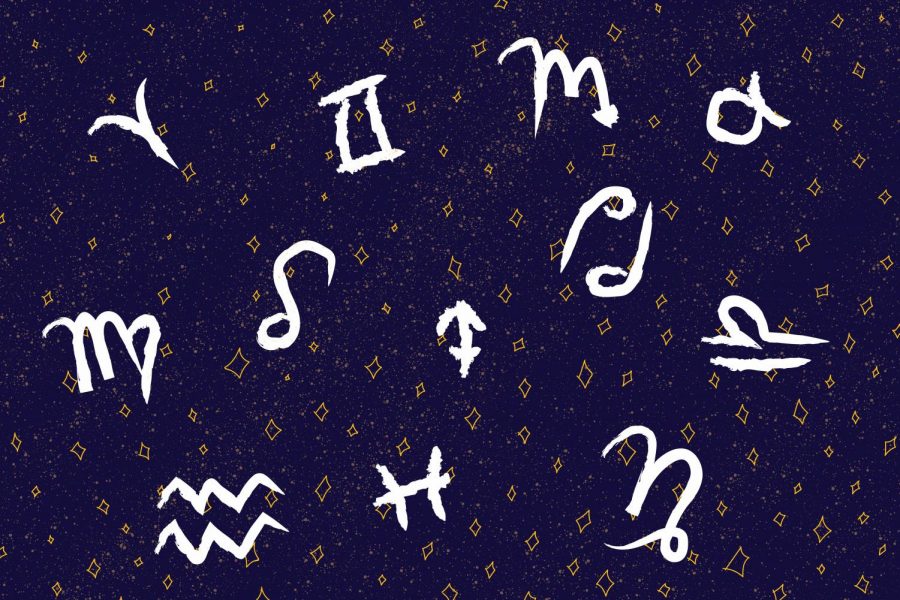Astrology: An unexpected and uniquely modern anchor during times of crisis
Studies show millennial despair to be on the rise. While secularism is increasing, a 21st-century version of astrology is filling a spirituality void through social media and memes, as well as through professional chart readings.
June 17, 2020
“What’s your sign?”
That is the perpetual question, asked with that uniquely semi-ironic, semi-genuine tone by a subset of people who have a fixation on a concept many skeptics thought was obsolete — astrology.
Astrology is trending on social media, transforming an ancient practice into an archetype of internet culture through memes, apps and hashtags. For people like Weinberg senior Zoe Johnson, it has become a form of spiritual thought in a generation where secularism is on the rise.
“I don’t know how any of it relates to any kind of science,” Johnson said. “I also don’t really care.”
Johnson has been informally pursuing astrology for the last seven years through conversations with friends and chart readings.
“I’m looking for truths about myself,” Johnson said. “And I’m OK with those being relational and emotional truths rather than empirical or scientifically proven truths, because I think that most of the truths about ourselves are subjective anyway.”
Astrology is a form of divination using the cosmos as a map for determining patterns and making predictions. While most people know their Sun sign, there are many components that create a comprehensive “natal chart,” which astrologers use to make predictions. Within astrology, there is also a diverse array of cultural and geographic methodologies.
While some form of cosmos-based planning was present in many ancient civilizations, it was in ancient Greece that the popularly known star signs of the Western Zodiac were locked down as metrics, according to Time Magazine.
Twenty-first-century astrology has a distinctly modern feel. Instead of Old Babylonian tablet calculations or Alexandrian theorizing, modern astrology is widespread as an internet trend — fitting neatly into the world of memes, Twitter, smartphone apps and secular skepticism.
Communication junior Connor Geary follows astrology, but tries to take its conclusions with a grain of salt.
Geary loosely tracks his astrological chart through apps like Co-Star and discusses star signs with his friends.
“It’s fake,” Geary said. “Astrology is not real. And then after that, you can just have a lot of fun with it.”
Secular spirituality for a despairing generation
Elena Sakopoulos works as a professional astrologer in Chicago. Sakopoulos graduated from the University of Chicago in 2015 with a degree in political science, but when she discovered the insights available through astrology, she shifted gears.
She got a certification through the National Council for Geocosmic Research and now works through Hidden Gift Astrology.
Sakopoulos attributes the 21st-century comeback in astrology to the unique unpredictability brought on by the post-9/11 world, saying the challenges of the current era prompt spirituality and ways of understanding that “fall within the cracks.”
Millennial despair is measurably on the rise due to things like financial stress, loneliness and workplace fatigue, according to a Business Insider study.
Astrology has also found a niche in the queer community, which Johnson attributes to the possibility for “self-interpretration” and “self-determination” in astrology.
“Being queer, there’s a lot of people trying to tell you who and what you are, what it means to be what you are, what rules there are about being who you are and what the societal consequences are,” Johnson said.
Johnson said astrology allows her to construct an understanding of herself that is personal and does not have to make sense to anyone else.
A unique take on a historical moment
Johnson said astrology has helped her contextualize the COVID-19 health crisis, citing the long history of pandemics and viruses that have harmed the global population.
“Right now there’s a particular alignment of stars, and that is going to change,” Johnson said. “Time will pass and things will come in and out of retrograde, and that is something that has been happening for billions of years.”
Speaking to the recent Black Lives Matter uprisings, Sakopoulos said she emphasizes bringing values of collective change into her work.
“We have an obligation to look inward, even if we don’t necessarily want to,” Sakopoulos said. “The need to heal ourselves individually is becoming more of a social responsibility.”
Email: [email protected]
Twitter: @BinahSchatsky
Related Stories:


